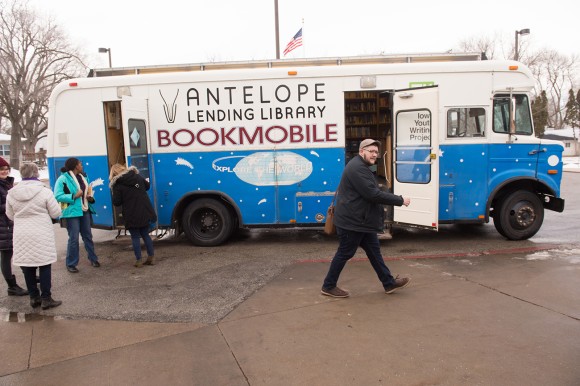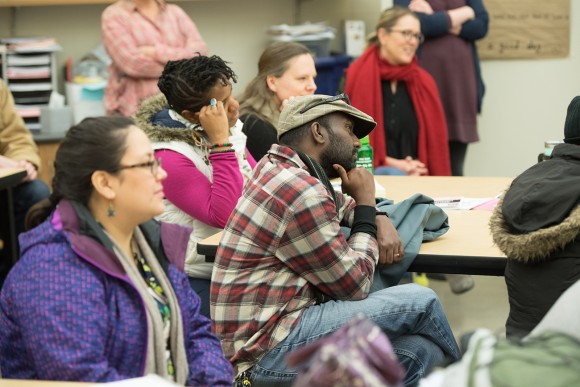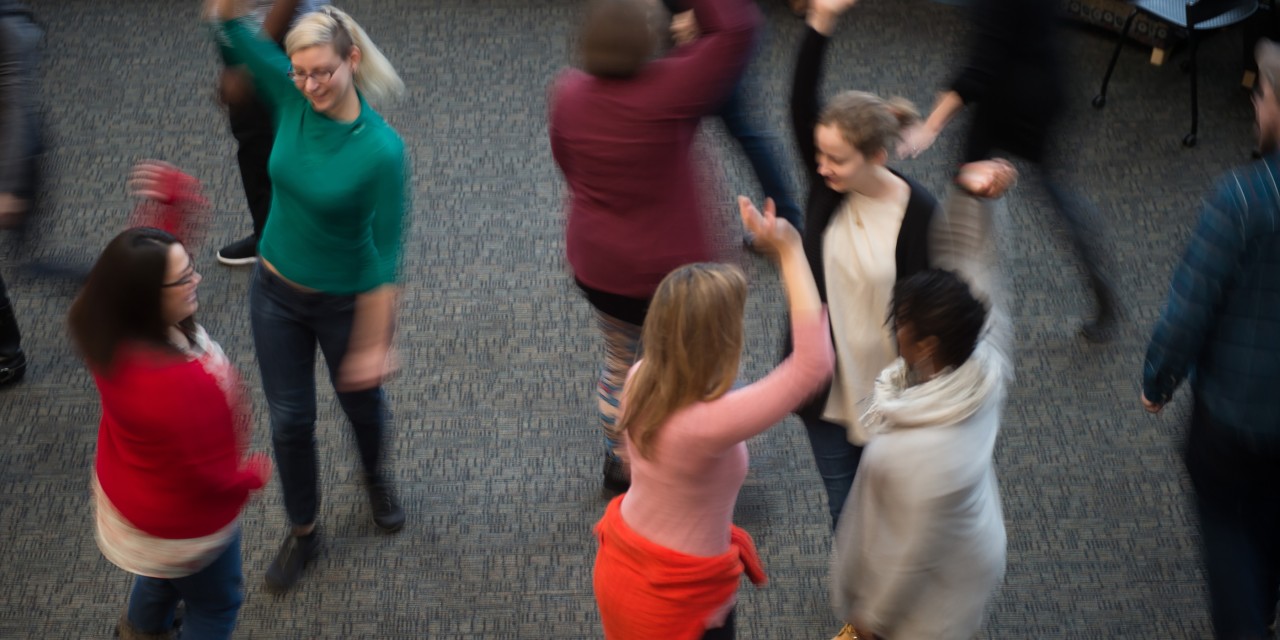The Graduate Institute on Engagement and the Academy is training the next generation of engaged scholars at the University of Iowa. For one week every year, a select group of graduate students gather to explore the potential of public scholarship to advance their research, teaching, and creative work. Participants discuss the philosophy and practice of public scholarship through seminars, workshops, and site visits. These activities help graduate students develop critical skills and build community with others who share their interest in producing work with community partners that enriches scholarship and the public good.

Director of the Obermann Center Teresa Mangum explains that the Graduate Institute emphasizes that publicly engaged scholarship is co-created with community partners and mutually beneficial, leading to a public good and humanities, arts, or design output. “The best partnerships I’ve seen are ones where everybody walks away feeling really good and that the partnership was worth everyone’s time,” Mangum notes. For academics, this often means the production of a publication or digital project to document the knowledge their engaged work produced. For community partners, the benefit should be clear: “Something they can point to,” Mangum says: “a new educational program is in place or we have a new set of resources for our curatorial program or we have a new junior high arts festival.”
Modeling and practicing this approach is built into the Graduate Institute program through partnerships with community organizations and institutions. The Graduate Institute initially invited the partners over for a meal and a discussion of engagement from their perspective, Mangum explains. “This was really productive, we begged them to be really honest with us about the benefits and liabilities,” Mangum explains. “We learned a lot about how you prepare yourself and your students to go into a site and the importance of education and orientation and the need to work with partners to develop what was happening in the site rather than assuming you could just step in and drop them off.”
The Graduate Institute has now formed multi-year partnerships with the Johnson County Historic Poor Farm (2016-2017) and the Iowa Youth Writing Project (2018-Present). During their week of intensive seminars and workshops, Graduate Institute participants spend one day with the partner to learn about their approach and their organizational needs and objectives.
“Then the students, in small groups across the week of the institute, would come up with brief proposals of projects that they think could really work for the partner,” Mangum explains. Should the partner be interested, the University of Iowa Office of Outreach and Engagement created a funding line that up to two groups of students can co-apply for with the community partner. That is not necessarily the objective of this exercise, though. The exercise aims to provide partners with a variety of student perspectives, enriched by their disciplinary training and interdisciplinary collaboration. The project also benefited the students, Mangum continues. “The students would benefit by getting the feedback from the community partners about how [their proposals] would work for them and the resources that would demand in terms of time and money. And so the students learned a lot about how to pitch a project, but also how to take critique and how to do further research to really learn how to make a project a collaboration instead of just a premise, but then inevitably one or two of the groups would end up moving forward.”

Graduate Institute participants Aiden Bettine and John Jepsen, both PhD candidates in History, received a grant to create an oral history project with the Iowa Youth Writing Program. With this funding from the Associate Provost for Outreach and Engagement, they purchased 60 audio recorders and taught local teens to gather community stories at an oral history summer camp they organized. To build a sustainable project, their next step is to design a curriculum for other IYWP facilitators to use. Jennifer New, co-founder of the Graduate Institute notes that “The project has turned out to be especially valuable for kids who are not native speakers. After struggling to succeed as writers, these students realize that they, too, have access to storytelling.” Mangum adds: “Our graduate students were able to work with the community partners on site to figure out how to do the research, to put the materials together, and to make meaning from their lives. Our graduate students have seen the power of research put into practice and our community partner has an invaluable new toolkit. That’s the best of all possible worlds.”
